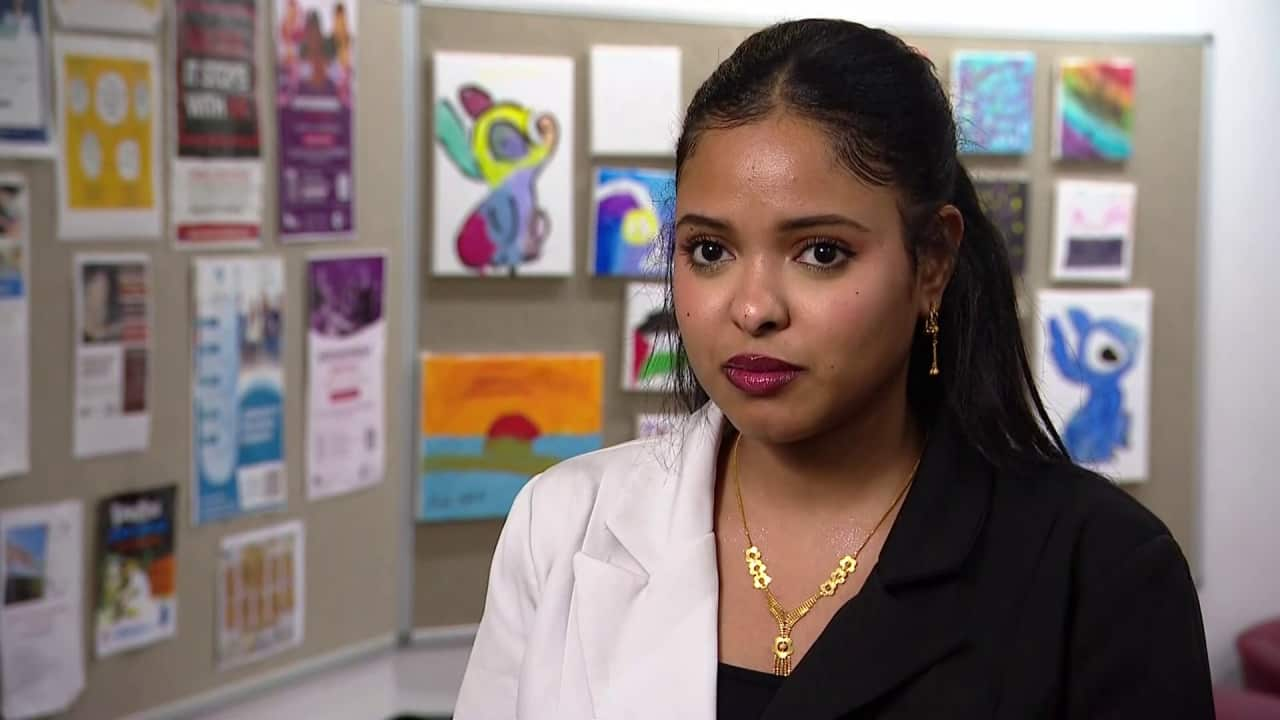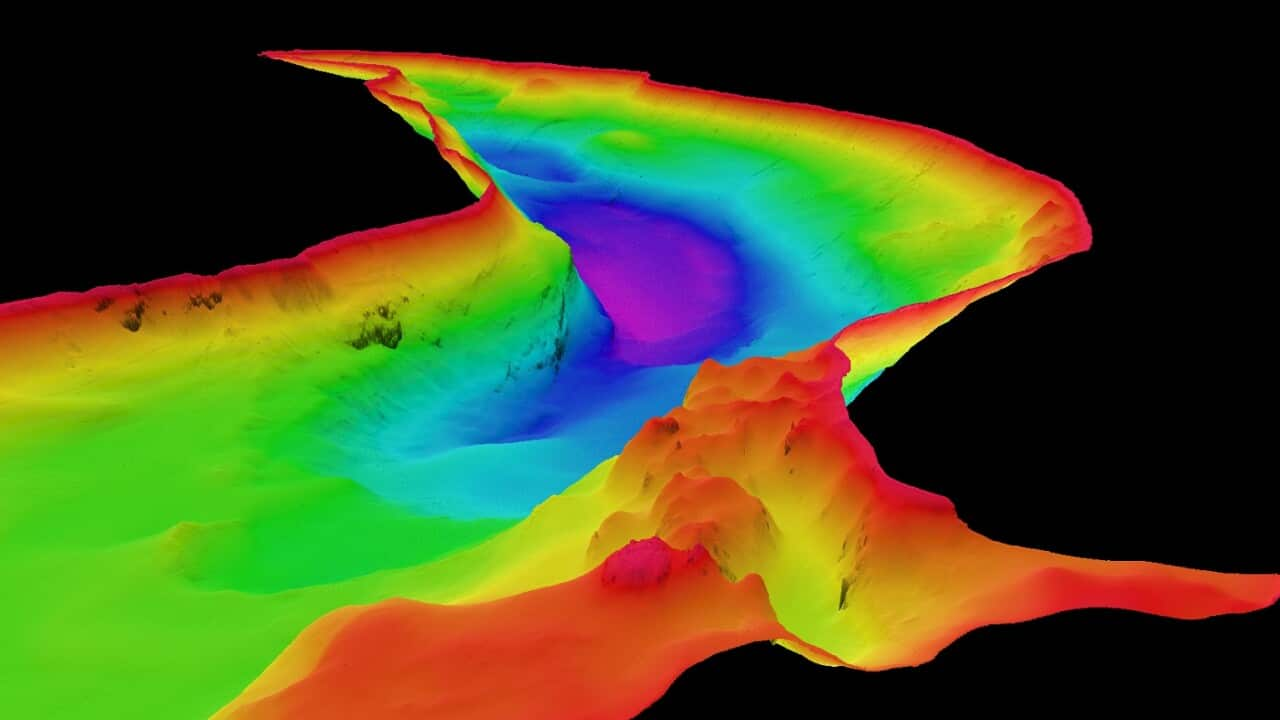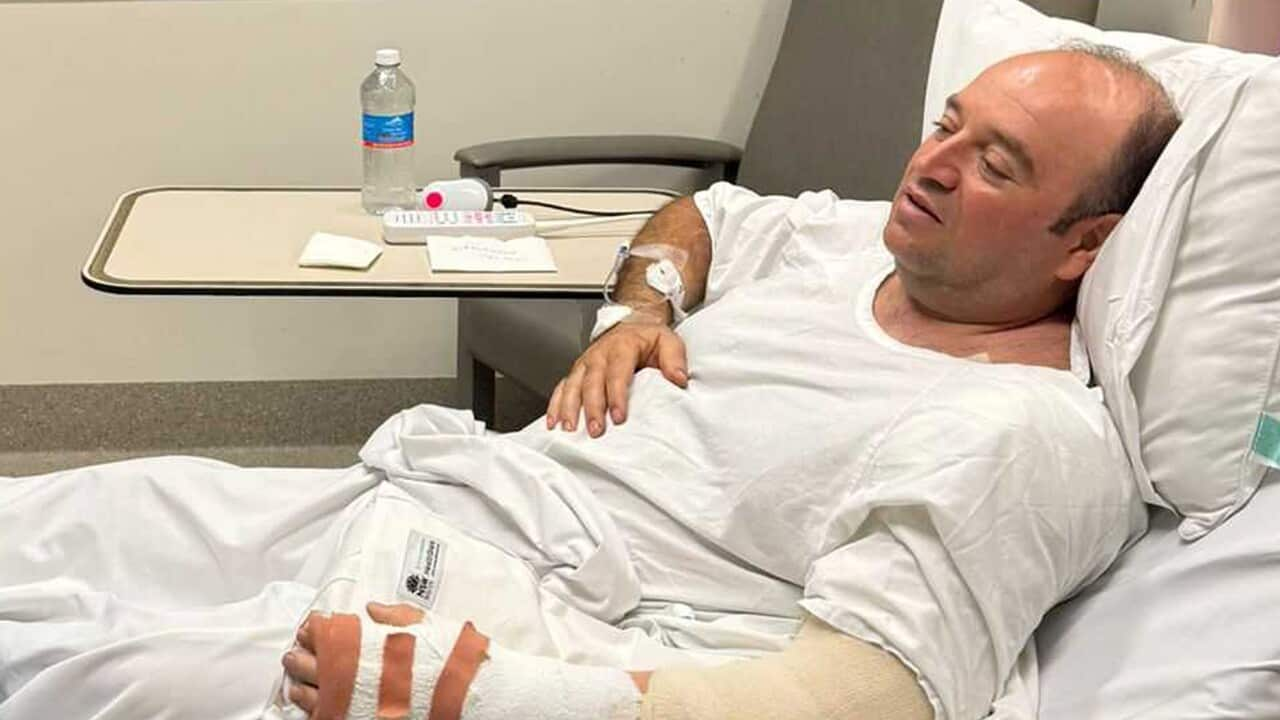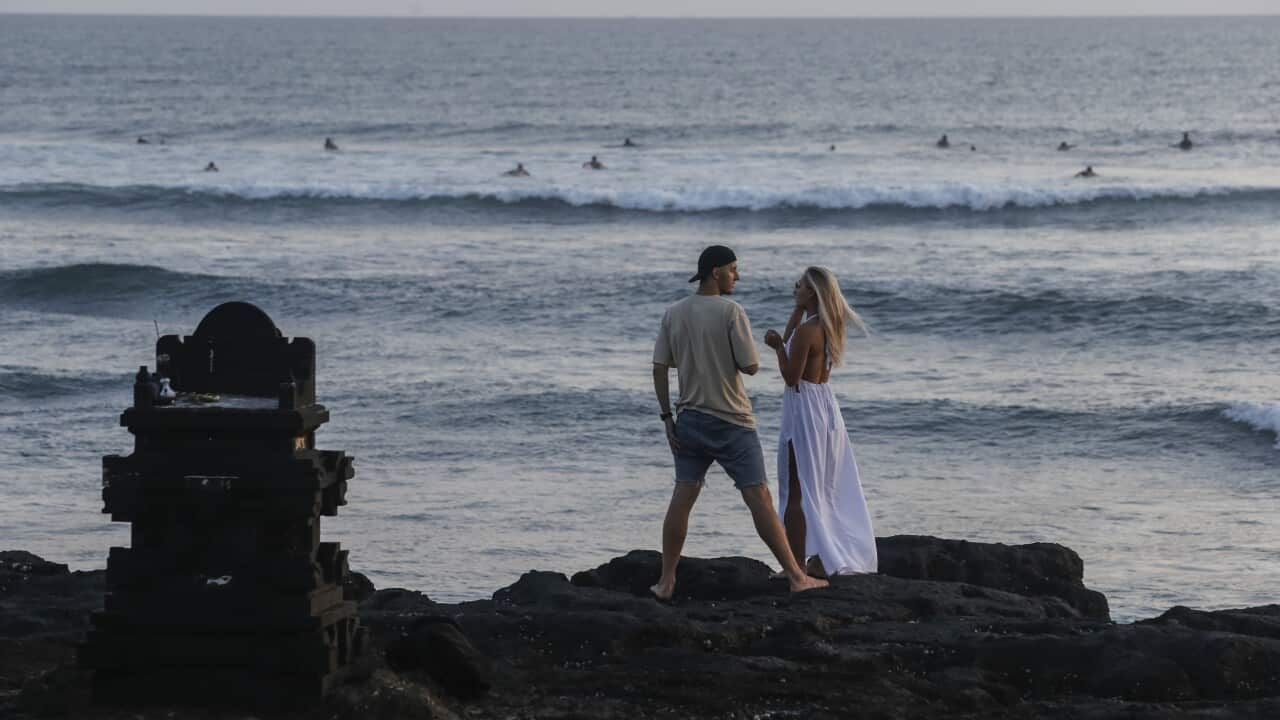TRANSCRIPT
Majduleen Ahmed is a 24-year-old Sudanese-Australian woman.
She deals with much of the same stresses and responsibilities felt by many other 24-year-old Australians, balancing her life as a student while working on the side to support her family.
But unlike many of her peers, Majduleen escaped the world's largest humanitarian crisis in Sudan in June of 2023 and she's now doing her best to spread awareness of her people's plight in her new home of Sydney.
"It's not just about raising awareness, it's about resistance and survival. I remember all the horror and the heartbreak of leaving everything I've ever known behind but I also clearly and vividly remember the hope that I was given for surviving."
The war in Sudan began in April 2023 when a disagreement between the military and the paramilitary Rapid Support Forces spiralled out of control, leaving widespread destruction and pushing the country further from a long-awaited transition to democracy.
Since then, the northeast African nation has been torn apart by the conflict with ethnic and gender-based violence skyrocketing, famine taking hold, and the fighting leading to the biggest internal displacement crisis on the planet.
More than half the 50 million people in Sudan are currently facing severe food insecurity.
Ms Ahmed says for her family and friends who remain in Sudan, life is a daily battle.
"I have do have family back there. Friends. Everyone that ever mattered to me still back in Sudan. Life for them is just daily fight for surviving, food and medications are very rare and electricity and water are luxuries. I know they don't meet the headlines as they should, but the struggle is still there. The violence still there. People are dying daily in silence."
Patricia Garcia from the Sydney based Institute for Economics and Peace is a respected humanitarian who has spent years working with refugees on the ground in Sudan.
She says the current crisis has been forgotten by the world.
"More than 13 million people have been displaced. That's over half the population of all of Australia. And when we are looking at the fact that no information, no news about what has happened in Sudan in this last two years, and yet the crisis happened before 7th of October. You can see the difference in terms of attention on what we now call the most catastrophic and yet forgotten crisis."
In response to the crisis, new organisations have emerged in Australia's Sudanese diaspora aimed at helping transition refugees to life in Australia and provide humanitarian assistance to those overseas.
One of those is the Sudanese Australian Health and Wellbeing Association, or SAHWA, a not-for-profit founded by Dr Ahlam Ibraheem.
After recent fundraising, they were able to send a shipment of vital supplies of food and medicine to their colleagues overseas
Dr Ibraheem says another key role of SAHWA is to organise with other groups to help cut through the noise of other wars to remind Australians of the urgent needs of her people.
"It's been there more than two years now and mostly the crisis, doesn't have as much attention from the worldwide, not only from Australia. We know that Australia is now busy with many wars around in the world and that our role now as the Sudanese people to increase that awareness and attention."
At an event in Auburn in western Sydney, SAHWA invited Majduleen and another refugee Duha Mohammed to share their stories of escaping the violence in Sudan.
Ms Mohammed says she never really understood the struggles of a refugee until she became one herself.
"After I became a refugee, I realised that refugees are actually really, really strong and it doesn't end like the moment you leave the war zone or the moment you escape, it doesn't actually end whatever it is that you're going through. It's an ongoing thing that you have to carry with you, I guess, for the rest of your life. It was very hard for me. The guilt that I go through every day, the mental toll that it took on me was that I just didn't want to do anything. I just wanted to be at home and just, I guess not go back to living normally. But then I realised that I kind of owe it to them to find out myself, to stand up on my feet so that I can help them in some sort of way, stand up on their feet and so that I can advocate for them."
She says being welcomed by the Sudanese-Australian community has made her transition to Australian life so much smoother.
"When I first came here, it was a bit different. It's a different culture, a different country, completely different ways of living. It was very hard to adapt at the beginning. And it helped me bonding with other Sudanese people that went through the same experience give me their insights and some of them that helped me. So it was really good to have people here. I think it would've been harder for me if I would've went to a place where I was all alone. No family, no friends, no Sudanese community to bond into. I think that would've been a whole lot harder."
So with the world's attention largely focused on the war in Ukraine and ever-escalating conflicts in the Middle East, the Sudanese community is doing their best to call on the Australian government to provide more humanitarian assistance and ease visa barriers for those fleeing violence.
Majduleen Ahmed says she understands it can be difficult to absorb all of this news, but she strongly urges Australians to not forget about Sudan.
"Every struggle and every war is very important. Every human being is very important, but I mean this is the biggest world crisis. Women are being assaulted, children are dying from hunger. So I would love for them to have a voice. I would love for Australian people to pay attention to this and keep an eye on Sudan."













